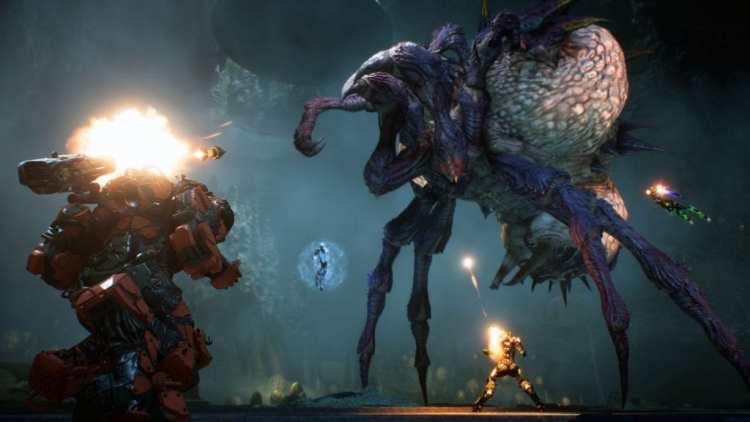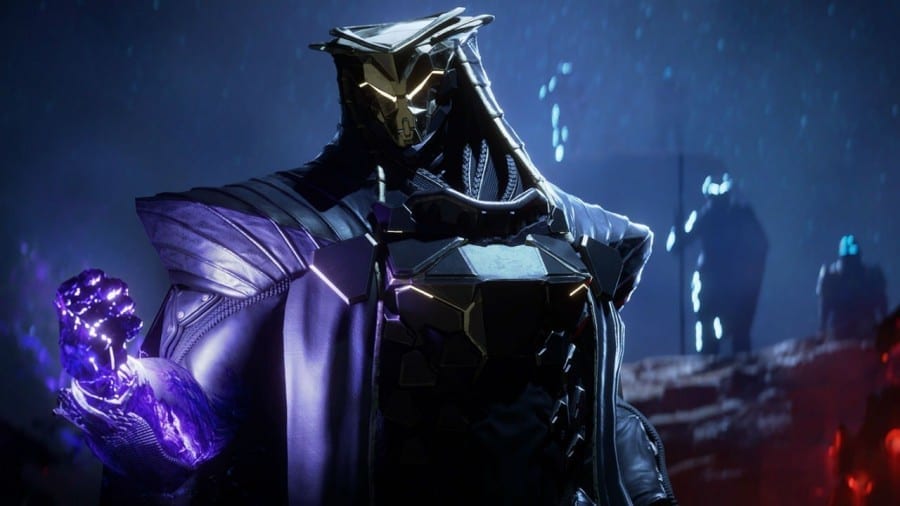“Yer a wizard, BioWare,” said Hagrid. BioWare whooped and cheered, excited at the prospect. It tried to cast the spell “Wingardium Le-vi-oh-sah” (not Levio-sahh) and it failed on both occasions.
Back then, “BioWare Magic” used to work. It’s the idea of troubling development cycles that would eventually coalesce and come to fruition towards the end, just like in Dragon Age: Inquisition. Well, it didn’t work for Mass Effect: Andromeda, and it sure as hell didn’t work for Anthem.
Anthem Woes
If you’re still wondering about what I’m getting at, it’s the recent Kotaku piece on Anthem written by Jason Schreier. A number of articles written by Mr. Schreier have shed light on the tumultuous and rocky development cycles of certain games. Diablo: Immortal and Diablo 4 come to mind, as does Destiny.
If you haven’t given it a read, I suggest that you do since it’s very insightful. You’ll also realize the parallels in Anthem‘s development with other troubled games. There were numerous teams and programmers voicing their concerns, whether it was the game’s design, complexities, and even the lack of support they’d get from Frostbite technicians. Anthem was a game that was in development for nearly seven years, yet it only entered production within the closing months.
Worse, you’ll also notice how the BioWare leadership had made mentions of Destiny “taboo” in the workplace, and how comparisons “elicited negative reactions from leadership.” The preferred point of reference for a loot game would be Diablo instead.
“We were told quite definitively, ‘This isn’t Destiny.’ But it kind of is. What you’re describing is beginning to go into that realm. They didn’t want to make those correlations, but at the same time, when you’re talking about fire teams, and going off and doing raids together, about gun combat, spells, things like that, well there’s a lot of elements there that correlate, that cross over.”

Anthem has a problem with loot and guns. This was from the E3 2017 reveal where loot would reveal itself as you picked it up, and not after a mission.
Guns, Guns, And More (Of The Same) Guns
When I reviewed Anthem last February, I made note of the following:
“The loot, even later in the game, feels unrewarding as it’s the same types of items just with more or better modifiers.”
The design choice was flabbergasting given that this is a looter-shooter, and yet the things you shoot with — your guns — were underwhelming and lacking in uniqueness compared to Destiny. Now, it all makes sense. BioWare staff had wanted to look at Bungie’s decisions and process, given that Destiny was “the market leader,” but the leadership wouldn’t let them. Meanwhile, BioWare’s strength was RPGs and worldbuilding which, coincidentally, could be seen during Anthem‘s middling story campaign.
Another thing I noticed during the review was this:
Anthem, without a doubt, is better than many other games if we only look at it in parts. Taken separately, its qualities and traits are the wet dreams and creative musings come to life for every sci-fi, action, adventure, and RPG fan.
That’s genuinely how I felt about Anthem. Multiple facets — from flight and maneuverability to the wide-open, seamless sci-fi/fantasy world, javelin skills and customization options, and more — were separately head and shoulders above the rest. And yet when you put them all together, you got an extremely subpar mish-mash of ideas.

Anthem’s dynamic action and exploration were top-notch, among other things, and yet there’s no glue that holds them together.
Mish, Mash, Rush, Rash
Surprisingly, the Kotaku piece also provided an answer as to why that was the case. Towards the tail-end of Anthem’s development, teams had no recourse but to buckle up for the “crunch” to make a playable product in time for release.
In its last few months during development, programmers just had to “finish what they started” and the process was akin to having “tunnel vision.” BioWare’s staff were unable to look at the game “from a holistic standpoint.” As noted by Mr. Schreier:
- It was tough to zoom out and get a feel for what it’d be like to play 40, 60, or 80 hours of Anthem when entire missions weren’t even finished.
- How could you tell if the loot drop rates were balanced when you couldn’t even play through the whole game?
- How could you assess whether the game felt grindy or repetitive when the story wasn’t even finished yet?
The attitude went from delivering a product that your team could be proud of, to just delivering a product and fixing issues later. BioWare Austin, who now has control of the game as it’s a live service, are motivated to keep things moving along. The problem is that changes can’t come soon enough. Remember how Anthem still has numerous issues with loot drops?
I've spoken to several current and former BioWare employees since my article went live today, including some I hadn't interviewed earlier. General consensus has been sadness and disappointment at BioWare's statement, which read as disheartening to those who hoped for change.
— Jason Schreier (@jasonschreier) April 3, 2019
The BioWare Reply
Perhaps the most surprising of all was BioWare’s official statement regarding the article. BioWare mentioned that they worked on the game “as a team” and that the article was apparently “attempting to bring down [BioWare personnel] as individuals.” The statement also noted that they take “the health and well-being of team members very seriously,” and that they “accept all criticisms… especially from our players.”
I genuinely found that strange given that the article brought to light the concerns and criticisms from BioWare employees. Anthem‘s development cycle was fraught with numerous mishaps, including team members leaving or resigning. One developer noted that “stress leave” became common during Anthem‘s development due to the frustrations with leadership, lack of communication and decision-making, and the crunch:
“I’ve never heard of people needing to take time off because they were so stressed out. But then that kind of spread like wildfire throughout the team.”
This isn’t about criticisms from players, because the players want to know the story about what went wrong with Anthem. This was about the criticisms from people who worked with it, telling us what went wrong in the first place.
Mr. Schreier noted that he had given bullet points beforehand to BioWare (who initially declined to comment). I was there when the Kotaku article made the rounds on r/AnthemTheGame. As I was reading it, BioWare’s reply surprisingly appeared moments later. Schreier even chided that they probably didn’t even read the article in full.
The article is easily a 30-minute read, perhaps more, so seeing an official statement that early was questionable. But, hey, if this is just another rushed action that leads to a clumsy outcome, then perhaps it’s just another form of “BioWare Magic.”








Published: Apr 3, 2019 06:26 pm